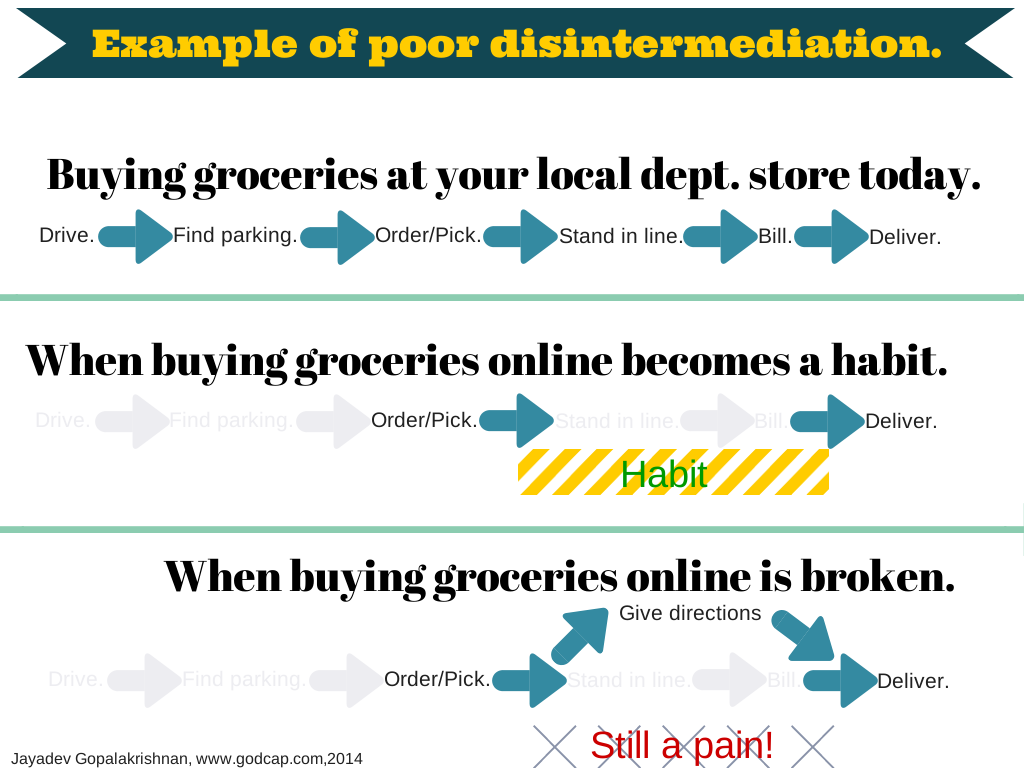I am a regular with both providers. And they have my address.
Yet I get a call each time from the driver/delivery person asking me for directions. Always.
And I spend at least 10 minutes giving him step-by-step instructions. In a world of the ubiquitously used Google Maps/GPS.
What problems are these companies solving?
Because if it's about making an otherwise inconvenient activity (hailing a cab) super easy, they have not solved it.
Instead of nudging me into the habit of placing an order and forgetting about it, they have forced me to worry about that call. 'Directions please' is the online equivalent of standing in a long checkout line at the neighbourhood department store.
Leveraging the internet to 'disrupt' something is not about fulfilling some pieces of the value chain. It's about creating an end-to-end experience that results in forming strong repeat habits in your users.
In other words, if you are a B2C internet company, is your product/service disintermediating enough?
But I can't expect my regular online grocery delivery service to find my house without making a call. (And like most regular people, I don't change houses often.)
It's clearly a case of poor implementation.
Consumers adopt online services for various reasons, typical issues that really bug them - long queues, finding a parking slot, or even something as unexpected as "I don't like talking to people"- this was the reply given by Ticketmaster's first online customer when asked about his decision to buy online instead of making a call.
So don't take customers who use your 'broken' service for granted. Though it might look 'trivial', 'fixable', or 'not priority' to you, the next company that comes along and solves that seemingly small problem is poised to win them over.
People don't change/replace habits all the time, do they? So it's a lot of hard work to get there. But once you do, you are onto something valuable.
Make that phone call obsolete, will you? Make it a 'Fill it, Shut it, Forget it' experience. That's when you are truly disrupting the game.
PS: 'Hooked: How to Building Habit-Forming Products' is a great read in this context.


 RSS Feed
RSS Feed